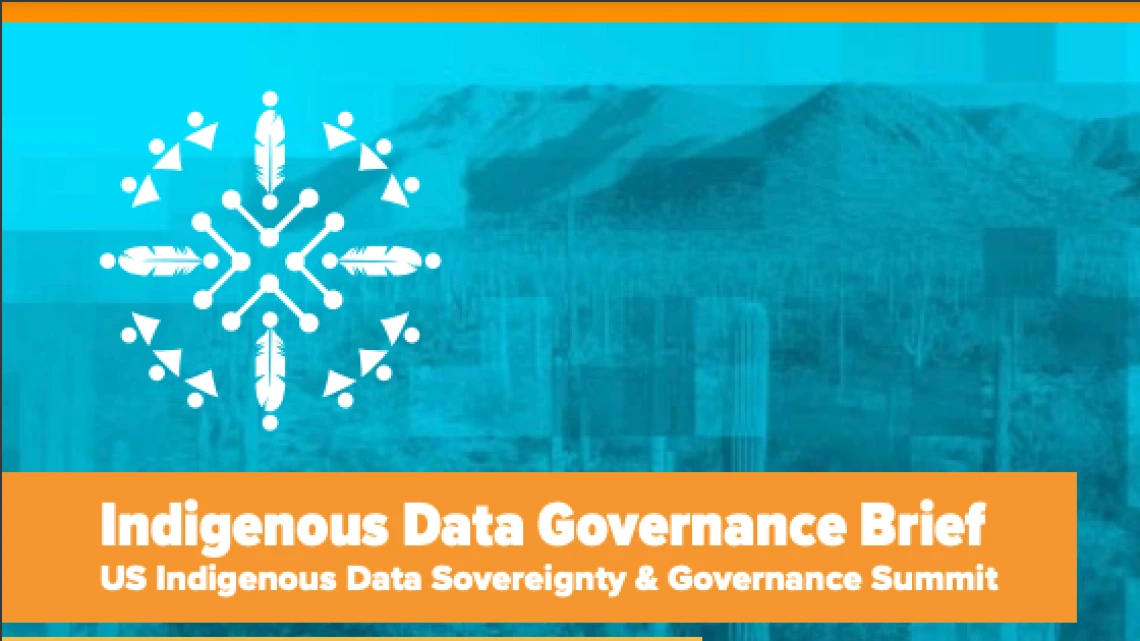New ‘Indigenous Data Governance Brief’ Outlines Strategies for Advancing Indigenous Data Sovereignty
The brief from the U.S. Indigenous Data Sovereignty Network summarizes the findings from two sessions at the April 2024 Indigenous Data Sovereignty Summit dedicated to gathering input from Indigenous leaders and scholars.

The U.S. Indigenous Data Sovereignty Network (USIDSN) released its “Indigenous Data Governance Brief” (Brief) today outlining five key strategies for researchers and scholars to advance Indigenous Data Sovereignty (IDSov) and Indigenous Data Governance (IDGov) in the U.S. and abroad.
According to the Brief, IDSov “refers to the inherent rights of Indigenous Peoples to exercise self-determination and governance over Indigenous data”; IDGov “refers to mechanisms through which (IDSov) is upheld.”
The five key strategies for advancing IDSov and IDGov outlined in the Brief are to:
- Establish Indigenous Core Values for Data Futures that can be adapted to guide community-specific data governance principles and strategies;
- Establish an “Authority to Activation Framework”;
- Establish a U.S. IDGov Strategy
- Establish an Indigenous Peoples Data Standard in the U.S.; and
- Reaffirm Established IDSov and IDGov approaches.
The Brief summarizes the findings of the “Tribal Leaders and Indigenous Scholars Workshop” (Workshop) and the “Action Planning and Forward Thinking Session” (Session) convened at the Indigenous Data Sovereignty and Governance Summit on the lands of the Pascua Yaqui Tribe and the homelands of the Tohono O’odham Nation in April 2024. It also goes into detail about each of the five strategies listed above.
More than 60 individuals representing dozens of Indigenous Peoples, Tribal Nations and Iwi shared their Indigenous contexts, relational practices and lived experiences during the Workshop and Session, including Indigenous people from Aotearoa (NewZealand), Australia, Canada, Mexico, all regions of the continental U.S., Alaska, Hawai’i, Guam and Puerto Rico.
Centering IDSov on Local Indigenous Contexts
The Workshop and Session included calls by Tribal leaders – like the Honorable Brian Vallo, former governor of the Pueblo of Acoma, and Dr. Sammy Matsaw, Jr. (Shoshone-Bannock/Oglala Lakota), treasurer of the Shoshone-Bannock Tribes Fort Hall Business Council – to commit to the standards set during those gatherings and to take meaningful action to advance the IDSov and IDGov movements amongst data actors, practitioners and decision makers at all levels of research, data management and governance.
“Data is central to unlocking who we are as (Indigenous) people,” said Matsaw, Jr. “It is central to our healing. We must take a stand for our freedom and our sovereignty. If we say those things, then we must live up to it. Breathe it, be it, do it all the time.”
As part of their work, organizers employed a structured, large-group-dialogue format called “Rez Café” (i.e. “World Café) to invite attendees to “reflect on IDGov principles, action, and strategies for Indigenous Peoples in the U.S.”
A series of core values to guide Indigenous data futures arose from those conversations which included sovereignty and self-determination as a foundation. Other “values such as love acceptance, reciprocity and accountability (among others)” also emerged during those discussions.
For those new to the concepts of IDSov and IDGov, the Brief also provides more than a dozen additional resources on those subjects to encourage further study and provides definitions of several key terms as determined by the Indigenous leaders and scholars who participated in the the Workshop and Session.
The full Brief is available to read on the USIDSN website here.

